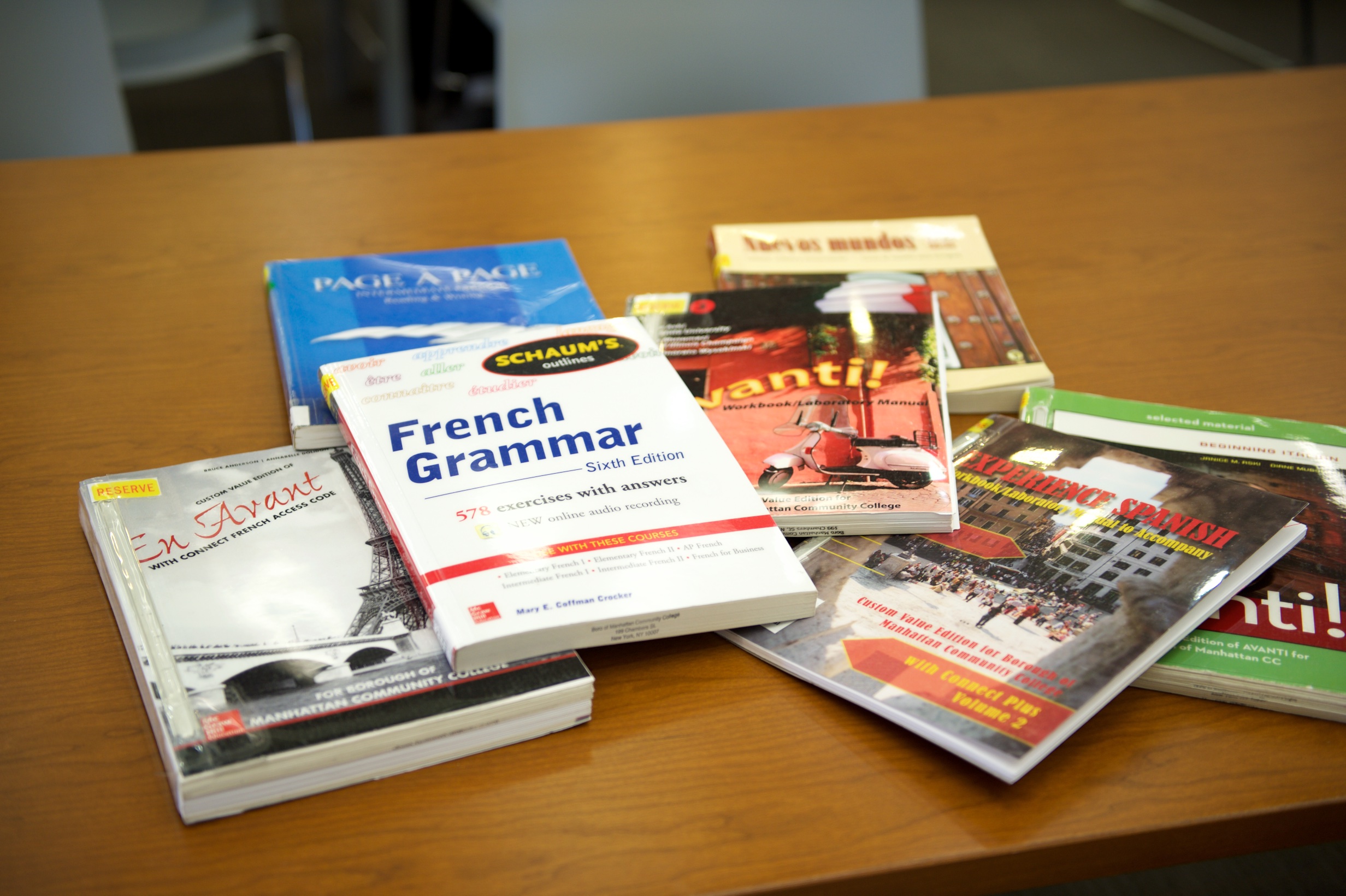
June 23, 2020
Faculty from the Borough of Manhattan Community College (BMCC/CUNY) Modern Languages department — Maria Enrico, (Department Chair), Ángeles Donoso Macaya, Sophie Maríñez, and Kristina Varade— have been interviewed in an extensive feature article published in the ADFL Bulletin. BMCC Associate Dean of Faculty James Berg is also included in the article. The full interview is now available online.
The ADFL Bulletin is a peer-reviewed journal published twice each year by the Association of Departments of Foreign Languages, a subsidiary of the Modern Language Association (MLA). The ADFL Bulletin prints essays dealing with professional, pedagogical, curricular, and departmental matters.
In 2018, BMCC’s Modern Languages department was approached by Dennis Looney, the MLA Director of Programs and the ADFL Bulletin. The organization wanted to learn more about BMCC’s strategies and perspectives, given the rapid growth of the college’s Modern Languages department.
The BMCC Modern Languages department offers more than 60 courses that help students understand dialect, grammar, intonations and word usage while improving idiomatic and grammatical conversational abilities. In addition to majoring in Modern Languages, students can take language courses as an elective in other majors.
Nine out of 10 students who graduate from the BMCC Modern Languages department eventually transfer to a four-year college, according to Professor Mariñez.
“Most of them pursue bachelor’s degrees in French, Spanish, Italian, education or translation. Others decide to go for a Bachelor’s in international relations, linguistics, business, history or Latin American studies with a minor in French or Spanish,” Mariñez told the ADFL Bulletin.
Currently, three BMCC Modern Languages department faculty serve in positions at the MLA.
Professor Donoso Macaya has been an elected assembly delegate since 2018. She was also elected to represent community college faculty in the northeast from 2018 until 2021. Professor Margaret Carson was elected in 2019 to serve in the same role from 2019 until 2022. Also, Mariñez has been appointed by the MLA’s Executive Council to its Community Colleges Committee.
Highlights from the ADFL Bulletin interview
Professor Enrico: “We live in a global city in a global world. Being able to communicate with others in their language creates a unique bridge that goes way beyond the purely linguistic and fosters understanding and appreciation of other cultures. And in terms of employment, it is a tremendous added skill. I always ask my students: If you were faced with two equally qualified candidates for a job but one could speak more than one language, which one would you hire given the global economy? They always answer: the one who is multilingual.”
Professor Macaya: “To me, education is a right. It should not be a privilege. I teach at a com- munity college because I believe in this principle and I like working with colleagues who also do. Another reason is the experience of teaching itself and the value of teaching”
“BMCC is part of the CUNY system. There are many possibilities for professional growth in an institution like CUNY, and this, for me, is very important. I care about my research and about my writing. I wouldn’t be the teacher I am if I were not able to develop my research and writing projects. Even my introductory Spanish classes are informed by my research—it is part of what I do, it is what interests me, so if we are talking about what we do or what interests us, I talk to my students about my research projects.”
Professor Varade: “I am continuously awed and inspired by the success of our students at BMCC. Italian-language students I have taught have gone on to prestigious private schools such as Cornell, Mount Holyoke, New York University, Columbia University, etc. Many go on to the CUNY four-year colleges, and several to honors programs at these schools. Most of my former BMCC Field Experience to Italy study-abroad students have continued to study abroad during their subsequent college or university programs, not only returning to Italy but even to places as far away as Mongolia!
Professor Mariñez; “Community colleges are a place in which we [faculty] get a chance to reflect about our roles in the world and the kind of impact we want to have, make a difference, and return to society the privilege we had to go to graduate school.”
“Our program provides thirty credits in general education and thirty credits in the major, all of which is completely transferable. Most of our students go to CUNY senior colleges, but some also get accepted to highly selective schools. One of our French majors, for instance, was just accepted into four prestigious universities in the United Kingdom system. We are always looking for selective private colleges and universities interested in recruiting promising, high-achieving students from diverse backgrounds. If your school offers full scholarships to underprivileged, first-generation, or minority students with high GPAs, please contact us!”
Dean Berg: “The joys (of an associate dean of faculty at a large, urban community college) are multiple: working with faculty members daily across the disciplines is invigorating, intellectually stimulating, and emotionally rewarding. We discuss their teaching, their research, and their commitment to the college and to CUNY. CUNY faculty members are dedicated to their students and to the social-justice mission of educating first-generation students, students of color, and immigrants.”
- ADFL Bulletin is a peer-reviewed journal from the Modern Languages Association
- Modern Languages Association is interested in rapid growth of BMCC Modern Languages programs
- The interview is now available online

